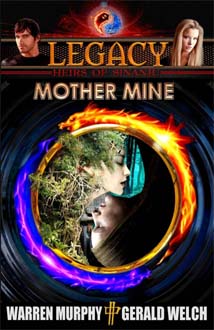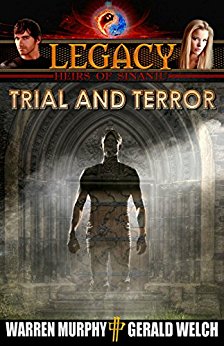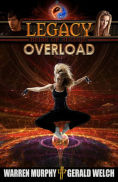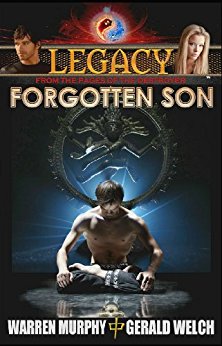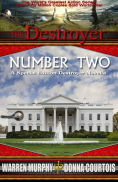 KEEP OUT! THIS SPACE IS RESERVED FOR ‘BIG WRITERS’
KEEP OUT! THIS SPACE IS RESERVED FOR ‘BIG WRITERS’
Most of what we’ve been discussing is about genre novels. But suppose your sights are set higher. You want to write a “big book.” No genre junk for you.
Okay. Here’s what you need to know. A “big book” is just a genre novel that got bigger.
“Jaws” and “The Exorcist” are good illustrations. They are ordinary genre books, but their lines are cleaner. You should be able to sum up their stories in one sentence — (but of course, I taught you how to do that months ago.) Still, one sentence is all you need…just make it a little bigger, a little more breathless, give it a little more end-of-the-world panache. Think of selling it to Hollywood where they call it high concept but what that really means is that it’s a very short outline of a book for people who can’t read a whole book or even a whole paragraph at once and their mind starts to wander after one sentence. .
In your “big book,” make your characters bigger. If you want to be prosaic, write about Jack the Ripper or some mug down the block. If you want a “big book,” write about Hannibal Lecter.
If you know something interesting, write about it. If you don’t know anything interesting, read something interesting and then write about it… maybe about Leonardo DaVinci…or Shogun…or about sharks. You don’t have to be an expert; you can learn enough to fake it and sound like one. That’s what Google is for. You don’t have to write about what you know, only about what interests you.
Then read your finished manuscript carefully and go back and take out all the dull parts. What’s left might just be a “big book.”
A NOTE ON RESEARCH:
I was going to write this about research but I hate research, so maybe this can be about theme because “big books” frequently have a theme, although it’s not absolutely necessary. See, themes are about ideas and some writers, very skillful and very successful, have never had an idea in their lives. Still and all, books and stories are made better when they have a strong theme, some underlying message that can resonate with your readers.
For instance, the overrated “Catcher in the Rye’s” theme is that life sucks. Okay, if you say so. Include me out.
The vastly better “This is Graceanne’s Book” has the opposite theme — that you can win; no matter the odds, you can do it. I like that one better.
Theme isn’t something you paste on after you write the first draft. Now, potboilers in general don’t have much thematic content because they doesn’t need to go far beyond: Bang Bang and the good guys in the white hats win. Theme is a more ever-present feeling that permeates the book you’re working on. Do you think when Ayn Rand wrote The Fountainhead or Atlas Shrugged, she first wrote the stories and then asked herself, “Now whatever could this be about?”
Of course not. She wrote one book with the thought of the individual genius in her mind; she wrote another to expose the dangers of succumbing to collectivist thought. Theme was the reason for the books’ existence. She was more political than most and, as I said, many books don’t have any discernible theme, except, buy it please and make me rich.
So let me tell you a personal story about theme; it concerns a book of ours that I already mentioned before, titled “Temple Dogs.” When we first considered this, it was pretty much a story of revenge, and the title we proposed was “Sons of the Wave”, because one of the major plot elements was the existence on this rich young New Yorker’s arm of a tattoo of the famous collapsing wave drawn five hundred years ago by Hokusai.
The editors didn’t like the title but instead of bitching, we thought about it some more and realized the story was really about the destruction of a crime family from within. How to graphically express that theme that even the strongest may fall when their inner core becomes corrupted?
Well, if you look at the published book, you’ll see that in the beginning of the book we used an “old Japanese legend” about the dogs who guard the outside of the temple, north, south, east and west, while the oldest, wisest dog seemed to do nothing. “What is his role?” someone is asked and answers, “He is the most important dog of all. He sits inside and watches, because most great temples are destroyed from within.”
Great legend, which illustrated the theme, and gave us a great title. “Temple Dogs.” And now a great confession: the old Japanese legend about the dogs guarding the temple? It never existed. I made it up because we needed it.
Does something work? Use it. That’s always been a good theme too.
And comb your hair.



